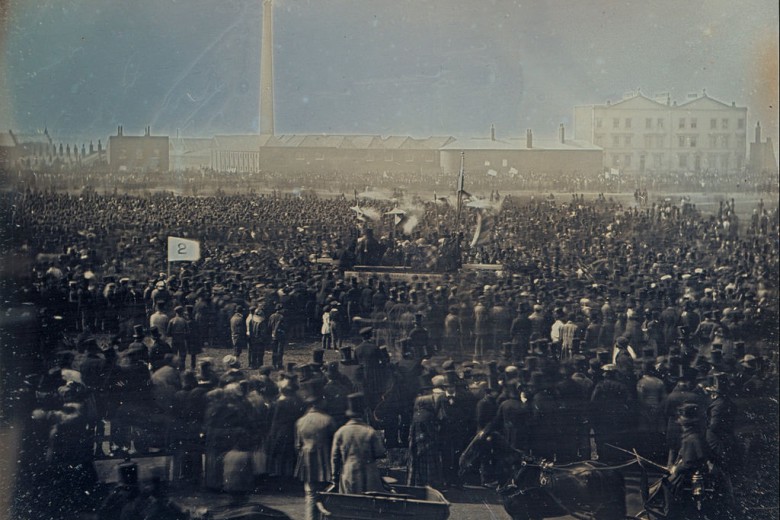The good we secure for ourselves is precarious and uncertain until it is secured for all of us and incorporated into our common life.
Jane Addams
Sometimes a term comes along that enables us to name—-to make visible—-our situation, to better understand the social and economic forces that shape our choices, and to connect various struggles within a broader tapestry of social change. Precarity is perhaps such a term.
Unfortunately, though, my spell-checker corrects me every time I type the word. Do I mean precocity?, I’m prompted. But although precarity is indeed “unusually advanced in development” (precocious), it actually refers to a social critique of the intensification of contingent, “flexible” work and unstable living under neoliberalism. So precocity doesn’t really cut it.
The concept of precarity is still fairly new. Sure, it’s received some breathless attention in Adbusters as one of the “big ideas” of 2005, and Fuse magazine published an excellent feature on the topic by Allesandra Renzi and Stephen Turpin (January 2007), but beyond these bastions of the avant-garde, the precarity movement remains largely a European phenomenon.
Particularly in Spain and France, the European anti-globalization movement and its allies have managed, through a combination of audacious media stunts and massive May Day protests, to bring the issue of precarity to the forefront.
The precarity movement seeks to diagnose and challenge the way that work is organized under neoliberal globalization. It speaks primarily to the forms that work increasingly takes in an era of closed borders and liberated capital—-increasingly part-time, temporary, contract to contract, and imported from afar. But it also addresses the broader conditions of life that accompany this shift: people are uprooted, indebted, living pay cheque to pay cheque, with an increasingly thin safety net to catch them if they fall, and at greater threat of natural and manmade disasters in a world that is rapidly pushing its environmental limits to the breaking point. From the closing of women’s shelters to the proliferation of food banks, from the bursting of the U.S. housing bubble to the fallout from the overheated Alberta economy, risk and uncertainty are replacing human rights and prosperity—-except, of course, for those who profit from risk and uncertainty.
In Canada, predictably, the painful consequences of this increasing precarity are being felt most severely at the margins, among migrant workers and recent immigrants in particular. With time, however, the exploitation of these segments will only facilitate the exploitation of other, relatively more privileged and protected segments, including organized labour and the middle class. As Erika del Carmen Fuchs and Adriana Paz of Justicia for Migrant Workers point out in this issue, “As migrant workers’ rights are cut, so are the rights of Canadians—-and when they suffer, the rest of Canada does as well” (p. 10).
For that reason, we’ve devoted much of this “precarious work” issue—-our annual labour issue—-to the struggles of migrant and immigrant workers in Canada. How we respond to their struggles will largely determine whether, or to what extent, their fate is visited upon other segments of the population. We also highlight numerous examples of groups organizing to confront this precarity, and explore the call for a “guaranteed income” as a possible antidote (p. 28).
There is an implicit assumption here that the labour movement can and must be a catalyst for change in confronting this new stage of the class war. Indeed, unions may have no choice: the growing pool of precarious labour, which remains largely unorganized and disconnected, is gradually displacing the proletariat—-the industrial workforce from which organized labour first sprung—-as the social class upon which the economic system depends, and from which any lasting challenge to neoliberalism must emerge.
The ability of the labour movement to respond to this shift, to bridge this gap between the proletariat and the precariat, will largely determine its success or failure in confronting neoliberalism and defending workers’ rights. As Karl Flecker writes in this issue, there are hopeful signs that the labour movement is rising to the challenge (p. 6).
So much of what we call activism these days focuses on what and how we consume—-on “green” consumerism, on ethical purchasing, on boycotts, on fair trade—-that it’s worth remembering how much of our power lies not in how we spend our money, but in our work—-in what we produce, and under what conditions.
Precarious workers of the world, unite, the new slogan goes. You have nothing to lose but your chain stores.



_780_520_90_s_c1.jpg)


